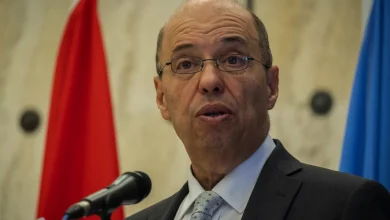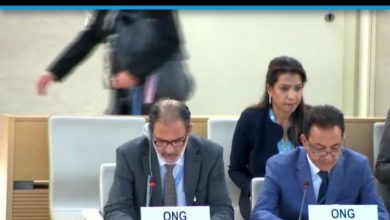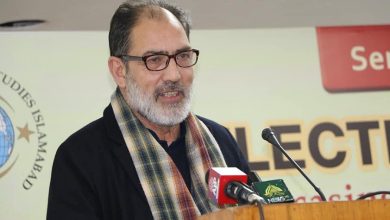India urged to allow UN Working Group on Arbitrary Detention to visit IIOJK
Dr. Fai calls on WGAD to probe detention practices as Geneva session begins
 Geneva: Dr. Ghulam Nabi Fai, Chairman of the World Forum for Peace & Justice, has called on the Indian government to permit the United Nations Working Group on Arbitrary Detention (WGAD) to visit Indian illegally occupied Jammu and Kashmir Kashmir, highlighting longstanding concerns over human rights abuses in the territory.
Geneva: Dr. Ghulam Nabi Fai, Chairman of the World Forum for Peace & Justice, has called on the Indian government to permit the United Nations Working Group on Arbitrary Detention (WGAD) to visit Indian illegally occupied Jammu and Kashmir Kashmir, highlighting longstanding concerns over human rights abuses in the territory.
According to Kashmir Media Service, the plea comes as WGAD begins its 101st session, this week, in Geneva, led by Dr. Matthew Gillett, where it will assess cases of arbitrary detention globally.
Referencing Amnesty International’s 2023 report, “Nobody Knows What’s Happening in Kashmir,” Dr. Fai pointed to what he described as a “dark Gulag” of arbitrary detentions, with thousands of Kashmiris missing since the late 1980s. He criticized the Indian government’s “misleading narrative” and “apathy” from the international community, emphasizing the need for global support in addressing what he referred to as a “modern-day holocaust.”
According to Dr. Fai, India’s draconian laws—including the Public Safety Act (PSA), Armed Forces Special Powers Act (AFSPA), and Unlawful Activities Prevention Act (UAPA)—create an environment where occupation forces operate with impunity, allegedly leading to widespread arbitrary arrests and detentions without trial. Dr. Fai cited the cases of prominent Hurriyat leadeers and human rights activists like Mohammad Yasin Malik, Masarrat Aalam Butt and Khurram Parvez, arguing that their detentions contravene Article 9 of the International Covenant on Civil and Political Rights (ICCPR), which India has ratified.
Dr. Fai further condemned reports of child detentions in occupied Kashmir, calling them a violation of Article 37 of the UN Convention on the Rights of the Child, which restricts the arrest and detention of minors. He referenced reports from human rights organizations and academic studies, including an analysis by American University, showing that arbitrary detentions increased following the 2019 abrogation of Kashmir’s special status.
International responses have highlighted these issues. The U.S. State Department’s April 2024 Human Rights Report on India noted thousands of disappearances attributed to state and paramilitary forces. It also highlighted the lack of action on mass graves and unidentified burial sites in Kashmir.
As WGAD begins its session in Geneva, Dr. Fai urged the group to press India to allow a comprehensive assessment of Kashmir’s detention practices, saying, “The international community has a proud tradition of defending freedom and human dignity; this tradition must extend to Kashmir.”








